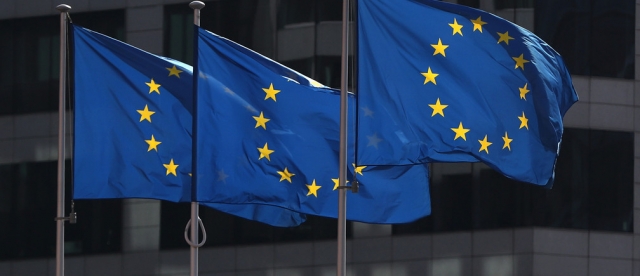EU Welcomes Crisis Communication Action Plan Adopted by Georgian Gov't
"We welcome the crisis communication action plan adopted by the Georgian Government to raise awareness about state services and the available support it has rendered to ease the hardship that families, individuals and communities are experiencing." This was noted in the European Union's statement, which concerns gender equality and the protection of vulnerable groups in Georgia in the context of the coronavirus pandemic.
The European Union noted that "gender equality is a founding principle and core value of the European Union," adding that "quarantine and isolation policies, coupled with financial stress, imply a clear risk for continued and increased gender-based and domestic violence in all parts of society."
The European Union welcomed the measures aimed at raising the citizens' awareness of their fundamental human rights and obligations in this regard.
"It is positive that support services, such as the 112 line and shelters, remain available to victims of gender-based and domestic violence ,with adjustments made to the crisis situation. Further measures, such as the awareness-raising of citizens of their fundamental human rights and obligations, as well as the building of trust in state support and effective responses to cases of violence, are also welcomed," said the statement that was issued by the Delegation of the European Union to Georgia.
The statement also noted the role of the response of the Human Rights Council and the Inter-Agency Commission on Gender Equality, Violence against Women and Domestic Violence Issues in overcoming this crisis.
"The response by the Human Rights Council, including its Inter-Agency Commission on Gender Equality, has been - and continues to be - of great importance for Georgia's handling of this crisis. As the authorities and the private sector continue to adopt measures and strategies to fight against COVID-19, a clear gender analysis will be crucial to Georgia's successful handling of one of the negative key side effects of this pandemic," the statement said.
The European Union noted that the coronavirus pandemic is an unprecedented challenge that is forcing countries, citizens, and the government to radically alter their lifestyles, affecting everyone.
"The negative effects of the pandemic are particularly hard for people in vulnerable situations. The immediate and necessary measures adopted to address the health and economic challenges should not leave anyone behind, including those already living below the poverty line, internally displaced persons and persons with disabilities, victims of gender-based and domestic violence and people and children living on the streets.
“The EU and its Member States are supporting the government and a number of state and civil society organizations in their actions to help those most affected by the pandemic. Grants provided to civil society organizations, including through the so-called Rapid Reaction Mechanism, allow them to provide immediate support to vulnerable groups. In a crisis like this, all parts of a democratic society play a crucial role, wherefore an enabling environment for a pluralistic civil society is more important than ever. No one is immune to the effects of this pandemic and no one should be left behind.
"Gender equality is a founding principle and core value of the European Union. Quarantine and isolation policies, coupled with financial stress, imply a clear risk for continued and increased gender-based and domestic violence in all parts of society. Special attention also needs to be paid to all children, ensuring their safety and equal access to health and educational opportunities. At the same time, no efforts should be spared to ensure that, in this challenging time, people with disabilities are granted proper medical care and education, economic support, and protection from any possible discrimination.
"We also want to highlight the heavy burden many women are taking on during this crisis, working at the front-line in those sectors mostly challenged by the virus, such as healthcare and social services. At the same time, they are also expected to care for their families, when childcare facilities, schools and sufficient care services for elderly and disabled no longer are available," the statement said.
Source: Press Service of the Government Administration












